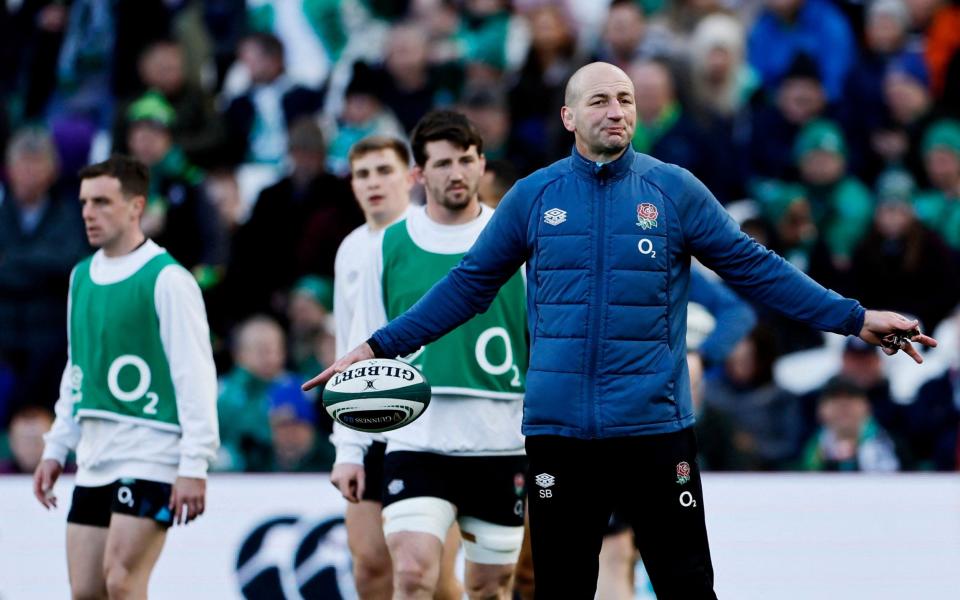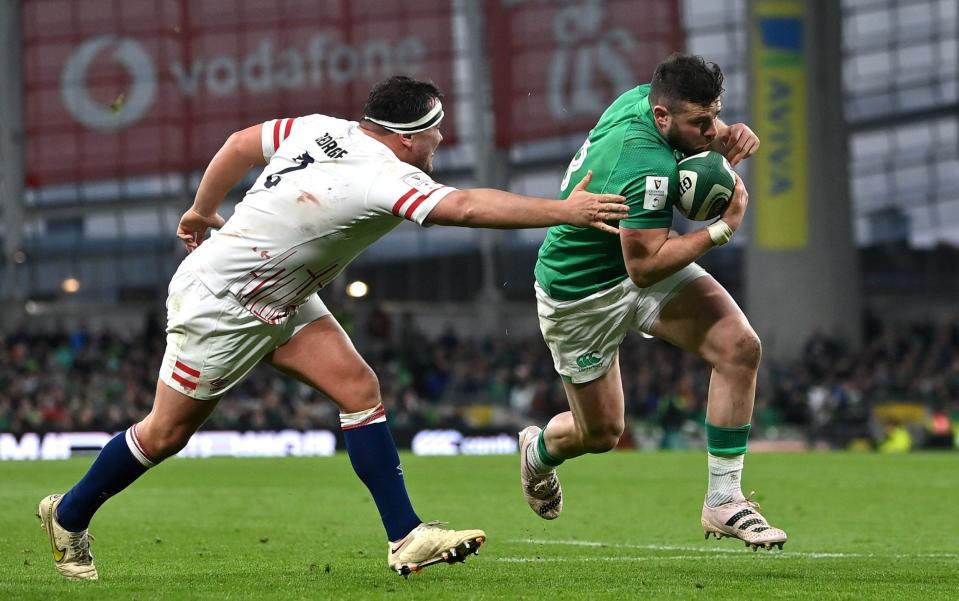This is what the RFU's Six Nations review should look like

Following Steve Borthwick's first campaign in charge of England, he will face an RFU review led by CEO Bill Sweeney.
Daniel Schofield steps into Sweeney's shoes to imagine how it should look.
What went well?
James Haskell’s half-time DJ set against Italy? I jest, I jest. Let’s be frank, we don’t need the digits of a second hand to list the positives.
Ollie Lawrence has emerged as a viable alternative power centre to Manu Tuilagi. Ollie Chessum and David Ribbans have bolstered the second-row stocks. Jack Willis sparkled intermittently. I know you have been in my ear about the fact that two of those won’t be available after the World Cup.
I find it somewhat surprising that England finished the tournament with the best line-out and scrum success, even if the set-piece never appeared truly dominant. The heart shown against Ireland at least demonstrated that we are no longer the Tin Man on the Yellow Brick Road towards the World Cup.
What went badly?
The 18 tries that we conceded is a new England low in the Six Nations era. No team missed more than our 145 tackles. Unfortunately this was not because we were a gung-ho reincarnation of the 1973 Barbarians. Indeed, the statisticians at Opta tell me we only made 3.2 linebreaks and 4.2 offloads per match - both tournament lows - and only Wales beat fewer defenders. I felt we could have played through to the next St Patrick’s weekend without scoring a try against Ireland through our backline play.

Still at least we finished at the top of the charts for turnovers conceded (71) and knock ons (22) - are they not good things? - while Owen Farrell’s dodgy ankle may have contributed to the fact no teams missed more shots at goal than we did.
So apart from not being able to tackle, beat defenders, hold on to the ball or kick our goals, everything else is grand. Right?
Oh, you’re saying we are not fit enough. I see we lost the final quarter of all our matches bar Wales, by a cumulative scoreline of 50-20. When stretches of play went past 60 seconds or more, our boys looked gassed. Go back to the second minute of the France defeat when Thomas Ramos scored and our players were walking back into the defensive line.
That current physical deficiency is matched by a long-term psychological frailty - what the last chap referred to as the hand grenades in the back of a truck - that was so brutally exposed against France. That may take longer than a summer training camp to redress.
For every player who took a step forward, at least one regressed (see Dombrandt, A). The 8-9-10-12 combination is less a question mark than a long series of exclamation marks, especially when you compare it to the settled spines of the French and Ireland teams.
How can Steve Borthwick improve?
Cohesion has been a big buzzword of Steve's throughout the Six Nations but that starts with continuity of selection. He changed the midfield four times in five games. Take the strange case of Marcus Smith whose Championship reads: starter, eight-minute replacement, less than a minute from the bench, dropped from training squad, starter, unused replacement.
Of course, he needed to discover for himself what combinations did and did not work after three years of vacillating under Eddie (soz, this might have been our bad). But with four warm-up matches remaining before the World Cup, we are rapidly running out of runway. It is time to nail some colours to the mast of Farrell, Smith or Ford, and build a lot of familiarity around those particular talents.

We are delighted to have got trusted lieutenants in the form of Richard Wigglesworth and Aled Walters, who should do a lot to address the fitness issue as head of strength & conditioning, but the appointments of a new scrum and attack coach are equally crucial parts of the jigsaw. Given that Wigglesworth and Sinfield are relative coaching novices, it might be an idea to find a wise old head to come into one of these roles or as an external consultant. I believe South Africa did this with a chap in 2007. We could see if he is available?
What can we (the RFU) do to help?
Mea culpa, we have got one or two things wrong over the last couple of years. But what is done is done and while it might have been a bright idea to put a gardening leave clause in the terms of a certain Australian’s payout, let bygones be bygones. What can we do now?
The chequebook is open to bring a big beast of the coaching world on board. Expense should also not be an issue if many of the Australian’s plans for World Cup training camps need to be changed. And yes we will look at the whole picking players in France thing.
Ultimately, there is only so much we can do in time for this World Cup cycle. Agreeing a new Professional Game Agreement for 2024 is the single most important item in our in-tray. Building a truly collaborative and creative partnership with Premiership Rugby has the power to transform English rugby and salvage the reputation of many of our executives.
Why would anyone hold their breath?

 Yahoo Sport
Yahoo Sport 





































